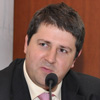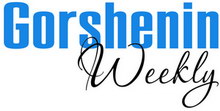As Eastern Mediterranean’s Waters Heat Up, Turkey Should Lead An OSCE-Type Initiative In The Middle East[Over]  by Mehmet
Ogutcu, by Mehmet
Ogutcu,
Expert in global energy security matters
The Turkish leadership has committed itself to a tough position on Israel, Cyprus and Syria, and any backtracking or sign of weakness will seriously affect its credibility at home, with regional partners, the “Arab Street” and other major global powers, as well as high stakes involved in the Eastern Mediterranean. This represents a policy of principle, consistent with the values and goals the government pursues, but is also a risky one, which if not well managed may lead to some undesirable hot confrontation. The power comes with responsibility if it will be effectively harnessed.READ MORE
A chance to get serious about EU-Russia relations[Over]  by Marat Terterov, by Marat Terterov,
EGF Director
Although 2011 is still far from over, it is already likely to go down in history as the year of the so called ‘Arab Spring’. 2011 will be remembered as the year when Arab populations threw down the gauntlet to their stagnating regimes, revising their traditional authoritarian power model and at long last commencing the transition to democracy. So too it is time to consider revising the European Union’s relationship with Russia, which has stagnated rather badly in recent years. Since the “big bang” enlargement of the EU in 2004, Moscow’s relations with Brussels have been increasingly characterised by tension (if not crisis) in their energy ties and failure to reach agreement in many areas of common strategic interest. In June of this year, the bi-annual EU-Russia Summit, held in Nizhny Novgorod, was dubbed as the ‘Vegetable Summit’ in the international press as Moscow and Brussels exchanged blows over the Russian ban on vegetable imports from the EU following the E.coli health scare in Germany. READ MORE
A new regional power in the Eastern Mediterranean? [Over]
Turkey's choice between strategic partnership and competition with the West
 On 27 June 2011, a roundtable discussion in Brussels enabled an interesting debate on the future of Turkish domestic and foreign policy. While internal debate on how to deal with internal political, ethnic and religious diversity, and on the future of Turkish democracy in the third term of the AKP government is stronger than ever, Turkey might be emerging as a new regional power in the Eastern Mediterranean. READ MORE On 27 June 2011, a roundtable discussion in Brussels enabled an interesting debate on the future of Turkish domestic and foreign policy. While internal debate on how to deal with internal political, ethnic and religious diversity, and on the future of Turkish democracy in the third term of the AKP government is stronger than ever, Turkey might be emerging as a new regional power in the Eastern Mediterranean. READ MORE
Yuliya Tymoshenko's lawyers demand immediate resumption of trial[Over] 
ISSUE #32
09/26/2011
The lawyers defending former Ukrainian Prime Minister Yuliya Tymoshenko
have submitted a request for an immediate resumption of the trial.
“Today, the defense is requesting an immediate resumption of the trial so the court
can consider a petition to change the preventive measure,” Tymoshenko's lawyer
Oleksandr Plakhotnyuk stated on 21 September 2011. First and foremost, this
relates to the former prime minister's state of health, he added. READ MORE
Political transition and the rise of Islamist politics in post-revolution Tunisia[Over] 
By Naim Ameur,
Senior Manager, Prime Ministry of Tunisia
EGF Affiliated Expert on Maghreb politics
Tunisia embarks upon the process of transition to democracy
It is now a well established fact amongst both the general public as well as the specialist of Middle Eastern politics that Tunisia under the almost-quarter century long rule of former President, Zine el Abidine Ben Ali, was managed by a highly restrictive and rather authoritarian political system. The system empowered key pro-regime political instruments such as the Constitutional Democratic Rally simultaneously to ensuring that opposition political parties remained largely powerless or even being loyal to the regime. READ MORE
Tymoshenko case hearings suspended till 27 September 2011[Over] 
ISSUE #30
09/12/2011
The court in the case of the former prime minister and leader of the
Fatherland Party, Yuliya Tymoshenko, has announced a break in hearings till
27 September 2011.
By doing so, judge Rodion Kireyev satisfied Tymoshenko's request to give her time
to get prepared for debates in court. READ MORE
- September 29, 2011 18:19PM
Turkey’s European Path: A Fact Finding Tool Box[Over]  By Deniz Altinbas, By Deniz Altinbas,
Assistant Professor, Ahi Evran University, Turkey,
EGF Affiliated Expert
A History of Turkey’s European Aspirations in Brief
Contrary to conventional opinion, Turkey’s interest in being part of the Western world did not start with its application to the European Economic Community (EEC). In fact, Turkey’s European orientation, diminishing as it is at present, began with the Rescript of Gulhane of 1839 (Tanzimat Fermani) and the Reform Edict of 1856 (Islahat Fermani). Among many other reasons, the major aim of the 19th century effort was the building of a Western model of state and society in wake of the declining power of the Ottoman Empire. READ MORE
Ukrainian Parliament passes pension reform[Over] 
ISSUE #25
07/11/2011
On 8 July 2011, the Supreme Council of Ukraine adopted the law on pension
reform, which was drawn up by the Ukrainian Cabinet of Ministers.
The law envisions that the retirement age for women will be gradually raised from 55
to 60 years, the work history requirement for a pension will be increased by 10 years
for both men and women and the maximum pension will be limited to 10 minimum
wages. READ MORE
EGF Turkey File[Over] Insights into Turkish domestic and international politics during June
Key Points:
- Despite the fact that the ruling AKP did not gain the electoral majority it requiredto unilaterally re-write the country’s constitution, the party continues to be the overwhelmingly dominant player in the Turkish political landscape.
- As was inevitably the case with Turkey’s position towards Libya following prolonged civil conflict in the country, Ankara’s position towards Syria is slowly but surely adjusting towards a tougher stance
- Turkey continues to keep one foot in Nabucco’s door, and the other in bilateral energy arrangements with neighbouring states. READ MORE
Court starts hearing «gas case» against Tymoshenko[Over] 
ISSUE #23
06/27/2011
On 24 June 2011, the Kiev Pecherskyy district court started a preliminary
hearing of the criminal case against Ukrainian opposition leader and former
Prime Minister Yuliya Tymoshenko.
She is accused of abusing power, which allegedly took place when she signed gas
contracts with Russia in 2009. READ MORE
EGF Turkey File[Over] March 2011
Key points:
• In the Ergenekon case, arrests by the government on vague charges reappear, this time targeting journalists and authors. Recently two journalists were detained based on secret evidence that security officials say cannot be revealed at this time.
• Ankara continues to practice ‘Strategic Depth’ foreign policy but has largely been left behind in the Western intervention in Libya. As Syria is rocked by protests and consequent crackdowns, Turkey is largely silent, preaching stability as the top priority for the region.
• Turkey rebuffs Russian demands on a South Stream guarantee while the EU’s head of Energy, Günther Oettinger, warns Russia against intimidating Central Asian suppliers of Nabucco. READ MORE
Ukraine, EU continue talks on free trade area[Over] 
ISSUE #12
04/11/2011
Another round of the talks on setting up a free trade area (FTA) between Ukraine and the EU has been held in Brussels. During the negotiations, the parties continued their discussion of institutional, general and concluding articles of an agreement. They also exchanged opinions regarding the prospects for reaching a deal on unresolved issues. Additionally, both parties reaffirmed their intention to complete the talks on signing an EU-Ukraine association agreement in 2011 and agreed to conduct the next round of negotiations in June 2011. READ MORE
Europe’s Key Geopolitical Challenges 2011: Summary Document[Over] Key Points for Policy Makers:
- The crisis in the Middle East and North Africa (MENA) is demonstrating that it is high time for Brussels to re- think its strategy towards the countries of the south bank of the Mediterranean
- EU political initiatives in MENA have often focused on democratisation capacity building, when most of the grievances which sparked this year’s revolts on the Arab street have been predominantly socio-economic in character
- Brussels needs to devise effective mechanisms to overcome divisiveness in the narrow priorities of individual member states if it is to become a credible force in the sphere of international crisis management. It also needs to improve its early warning crisis prevention and detection instruments – or develop such capacities
- MENA remains clouded by substantial uncertainty. There is no guarantee that democracy will emerge in the recently “liberated” MENA countries. However, Turkey might be able to offer such countries a credible model of democratic growth.
- Any major disruption in the supply of energy from the Middle East to international markets, as a result of the ongoing protests and civil conflict in the region, is unlikely
- A general realignment may be starting to take place in the Caspian and Central Asian energy markets: Russian may be losing its grip over the region
READ MORE
EGF Turkey File[Over] February 2011
Key positions:
• Former Turkish Prime Minister, Necmettin Erbakan, passed away Sunday 27 February. He was 84. Erbakan, the first Islamist prime minister of the Turkish Republic, was forced to resign after only a year into his reign by the military, in what is called the first ‘post-modern coup’.
• Under the guidance of current Prime Minister Erdogan, Turkey has stayed on the sidelines throughout much of the past weeks while protests raged throughout the Middle East. Ankara is finding its new position as a dominant regional actor as having less impact than previously thought, but has been forced to act pragmatically due to the proximity of its own citizens and financial interests in the affected nations.
• Prime Minister Erdogan recently spoke in Dusseldorf, Germany, telling Turks there that while they should learn the (German) language and participate in wider culture of their new homeland; assimilation would be an affront to their human rights. The prime minister also spoke positively about Turkey’s accession to the EU, surprising some for the positive manner in which the AKP leader addressed the issue after years of European rejection.
• The Nabucco gas pipeline still appears to be up in the air as none of the participating companies have yet signed any construction agreements, while a Russian delegation has put pressure on the Brussels-EU whilst addressing its own energy security concerns. READ MORE
Viktor Yanukovych: Ukrainian Corrupt Officials are hiring foreign lobbyists[Over] 
ISSUE #04
02/15/2011
The President of Ukraine does not agree with the statements that the fight against corruption in Ukraine only targets the people that are in opposition to the current Government.
The Head of State says the corrupt individuals, trying to avoid responsibility, are using various lobbying groups in the country as well as overseas with the purpose of discrediting the actions of the Ukrainian authorities. The President reminded that everybody should be held responsible for corrupt acts regardless of what political party they belong to. READ MORE
- February 17, 2011 09:45AM
Ukrainians are not afraid of terrorist attacks – survey[Over] 
On January 24th through January 26th, 2011, Gorshenin Institute has conducted a phone survey "Explosions in Makeyevka". A total of 1000 respondents age 18 or older representing all 25 regional centers, Kiev and Sebastopol, were selected at random following a systematic procedure aimed at filling sex, age and community quotas. The margin of error is no higher then +/-3.2%. Results of the survey conducted among the residents of Makeyevka are presented separately. READ MORE
Former Minister of Economy Bohdan Danylyshun has been granted a political asylum in the Czech Republic[Over] 
ISSUE #01
01/24/2011
On January 13-th, 2011, the Ministry of Foreign Affaires of the Czech republic has decided to grant political asylum to Bogdan Danylyshyn. As a reminder, the former Minister of Economy is accused of embezzlement in Ukraine. On October 2010, he was detained on the territory of the Czech Republic upon Interpol request. Later, Kiev demanded his extradition and the accused has asked for a political asylum in the Czech Republic.
READ MORE
EGF Turkey File[Over]
October 2010
EGF Editorial
Key Positions
- The 12 September referendum was seen as a vote of confidence for the ruling AKP, with several constitutional changes ratified by majority. However, a large opposition-voting bloc has emerged and appears to highlight the presence of a vibrant democratic atmosphere in the Republic.
- Kurdish-Turkish reconciliation has faltered in recent weeks, with large portions of the country’s Kurdish areas boycotting the 12 September vote.
- Rumours of a Gulenist-AKP split did not deter cooperation between these two leading Turkish political forces in the run up to the vote. However, with criticism of the AKP increasingly evident within Gulenist circles, there are signs that all is not well in the Islamist camp in Turkey.
- Turkey and Russia’s Gazprom are attempting to negotiate the sharing of burdens and profits from the Samsun-Ceyan oil pipeline with Italy’s ENI. The American ambassador to Turkey has endorsed the Southern Energy Corridor project, but with the caveat that no Iranian gas runs through the Nabucco gas pipeline. READ MORE
EGF Turkey File[Over] September 2010
John Van Pool
EGF Turkey Geopolitics Analyst
Key positions:
- British Prime Minster David Cameron’s recent speech to the Turkish Parliament, which gave strong support for Ankara’s EU membership bid, is likely to have caused more reaction from European national leaders had it been delivered in Brussels
- Last month’s agreement between Chevron and Turkish Petroleum to explore two deep-water wells in the Black Sea is a reflection of the Turkish government’s efforts to make the country self sufficient in oil and gas production by 2023
- Italian energy company ENI has attempted to reach a compromise for its role in the competing Nabucco and South Stream pipelines by reaching an agreement with Turkmenistan and Azerbaijan in which compressed natural gas reserves will be transported by ship across the Caspian Sea, which will provide supplies to both pipelines without alienating either project’s backers.
- Turkey’s National Security Policy Document (also known as the ‘Secret Constitution’), which is due to be reviewed shortly, will identify energy security as the country’s most pressing strategic issue, and will remove Russia, amongst other neighbours, from the countries it would consider as potential enemies. READ MORE
The Shanghai Cooperation Organisation: The Tashkent Summit Generates More Questions than Answers[Over]
EGF Editorial
On June 11-12 2010 the member countries of the Shanghai Cooperation Organisation (SCO) held their annual Summit in Tashkent, Uzbekistan, under the auspices of the (rotational) Uzbek presidency. The previous SCO Summit was held in 2009 in Yekaterinburg, Russia, where the agenda of the member states was dominated by the search for the right exit strategies out of the global economic-financial crisis, particularly those that would serve to minimise its nefarious consequences upon SCO members. In Tashkent, the agenda of SCO member country leaders was dominated by the following issues:
• Enhancement of regional stability and security
• Coordination of the intergovernmental struggle with international terrorism, extremism and separatism
• Contemporary problems relating to the above, including ongoing crisis in Afghanistan (a regional thorn for all of the SCO members) and the fallout of the political-security crisis in Kyrgyzstan
• Coordination of national and intergovernmental efforts to counter organised crime and narco-trafficking. READ MORE
EGF Turkey File[Over]
August 2010
John Van Pool
EGF Turkey Geopolitics Analyst
Key Positions:
• Terrorism-related acts of sabotage, linked to the outlawed Kurdish-separatist group, the PKK, took place on the Kirkuk-Ceyhan oil pipeline on 10 August, disrupting production
• The Moscow-backed South Stream gas pipeline has been losing support amongst influential stakeholders in the region (the Italian Energy company, ENI, has raised concerns that the project will not be commercially viable)
• Turkey appears to be slowly correcting its energy policy shortcomings of the past with Russia, and Ankara now seeks a more balanced energy partnership with Moscow
• Conciliatory gestures towards Turkey’s Kurds by the present Ankara government appear to have done little to ease tensions in the country’s south east, which is heavily populated by Kurdish minorities. READ MORE
Geopolitical Challenges 2010[Over]
At the end of December 1999, as the world prepared to usher in a new Millennium, in Europe and other parts of the planet, there was widespread concern that the so called “Millennium Bug” would strike, causing unforeseen disruption and havoc. Ten years on, in December of last year, for many in Europe, the Millennium Bug was just a shade in the memory as a far more ominous concern was pressing home – the prospect of another gas crisis. Although the fact that the Russia-Ukraine gas dispute of January 2009 – and its knock-on effect of leaving much of Europe without natural gas in the peak of winter – did not repeat itself during the record cold European temperatures of January this year, the very fact that European attention has become so focused on this theme demonstrates how geopolitical developments in the European hinterlands have come to impact the day-to-day livelihood of all Europeans.
Leading experts have shared their views on how such geopolitical challenges are likely to pan out during 2010 and beyond in an online session. Click here to go into the discussions or here to view forum summary
The EU-Russia Energy Partnership: Overcoming the Challenges[Over] The energy trade between Russia and the countries of the European Union (EU) is of fundamental significance for the energy security of each party. Despite the close proximity of the EU-Russia energy relationship, however, the legal and political basis underpinning this relationship, particularly with regards to the gas trade, has proven itself inadequate in guaranteeing the energy security of both parties. Russia's recent announcement of its intention "of not becoming a member" of the Energy Charter Treaty, and new proposal for global energy security has created further uncertainty. While it is hoped that a new government in Kiev will lead to an improvement of Russian relations with Ukraine, Ukraine's national gas transportation operator remains in a difficult financial position and another gas crisis embroiling Ukraine, Russia and the EU, whilst hardly imminent, cannot be entirely ruled out.
Leading Russian and international energy professionals have shared their views on these energy policy challenges in an online session. Click here to go into the discussions or here to view forum summary
|
|
